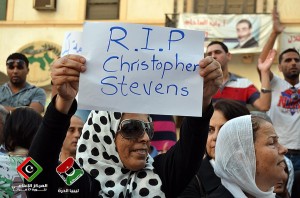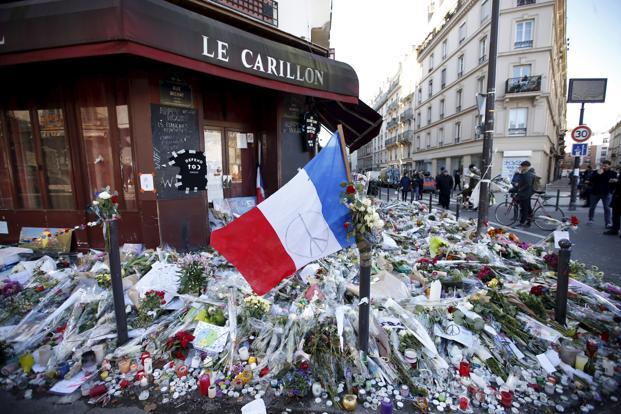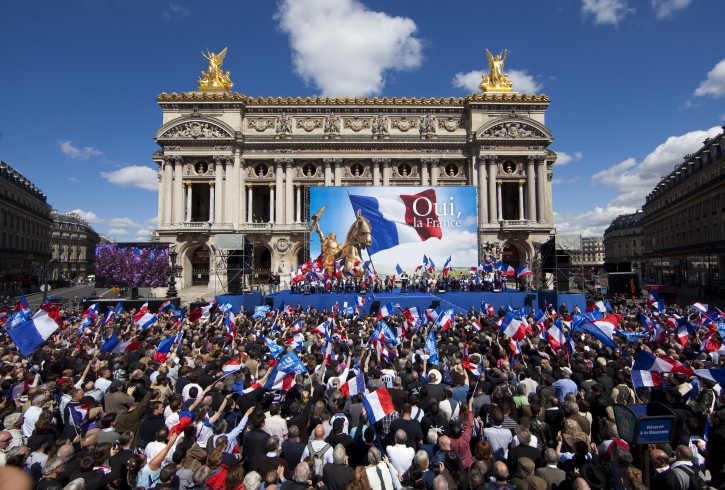By: Chet Martin
Yet again, on a Tuesday in mid-September, American citizens were murdered in a spectacular and coordinated attack.
A wave of protests in northern Africa crashed against the gates of the American embassy in Cairo, Egypt and the American consulate in Benghazi, Libya. In Cairo, embassy efforts to mitigate mob anger with a press release and a pathetically-ineffective tweet failed; the mob took the embassy walls and burned the embassy’s American flag. In Benghazi, the Libyan rebels’ wartime capital, a similar protest became the pretext for a violent, “military-style” attack that killed four American citizens: two members of US security forces (both former Navy SEALs) and two diplomats, including the American Ambassador to Libya, Chris Stevens. Touching portraits of the dead continue to emerge. An American safe house was simultaneously attacked, resulting in 30 Americans and Libyans wounded, and two more dead.
Even in the 24/7 media monster, there are a few moments that leave viewers wide-eyed and slack-jawed: the 2008 financial crash, the fall of Hosni Mubarak, the death of Osama bin Laden. We appear to be watching a new one now. Since the 11th anniversary of the 9/11/01 attacks on Tuesday, the Middle East has been boiling with anti-American vitriol. American embassies in Egypt, Libya, Tunisia, and Yemen (Arab Spring nations all) were subjected to varying degrees of protest, riot, and assault. Why?
The cowardly answer, and the simple one, is that this is the result of the poorly made video that infuriated the Middle Eastern populace. The video, awkwardly titled “Innocence of Muslims”, was made by the inconveniently non-existent Sam Bacile. It depicts Mohammed as a Conan the Barbarian-style savage, complete with near-pornographic smut, charges of pedophilia, and bestiality jokes. In initial interviews Bacile called himself an “Israeli Jew”, and claimed that the film cost the incredible sum of five million dollars and “was financed with the help of more than 100 Jewish donors.” After a little reporting blew Bacile’s anti-Semitic story out of the water, he was identified as the 55 year old Nakoula Basseley Nakoula, an Egyptian Coptic Christian living in Southern California. As of the time of this writing, Nakoula is being questioned by authorities to determine if he has violated the probation resulting from his 2010 bank fraud conviction. Smart money guesses that Nakoula’s cinematic career is over.
That is the explanation you will find from most news outlets. Rarely are so many assaults on decency crammed into a single report. This narrative assumes the benighted population of the Middle East waits breathlessly for insult. It ignores any slight that cannot be blamed on a misguided Californian; the clearly rising tensions in Egypt, for example, or the numerous drone attacks in Yemen that frequently kill innocent Yemenis. This anger is not a new occurrence; it is the anger that used a brave man’s death to topple tyrants and birth the Arab Spring. It is the anger of low expectations and no opportunity. It is both fed by and supplicant to implicit assumptions of savagery by Western media. There is little doubt that “Innocence of Muslims” was the specific grievance of the riots; there is no chance, however, that Mr. Nakoula created the anger to which they testify.
It is worth noting the government’s anti-free-speech answer to the problem. The Obama Administration asked Google-owned YouTube to remove the video in question; General Martin Dempsey, Chairmen of the Joint Chiefs of Staff, asked Pastor Terry Jones of Florida to quiet his support for “Innocence of Muslims”, making this the second time that cretin has been approached by a senior American military leader on bended knee. Disgusting as the video may be, there is no excuse for the pressure the government applied to private individuals like Terry Jones or corporations like Google. That Nakoula’s involvement in the video was greeted with a federal interest in the terms of his parole is especially disheartening. In light of this censorious impulse, here is the damnable video one more time.
Into this mess, predictably, strode the Washington beast. As the attacks in Libya were ongoing and US marines were fighting to retake the American consulate, Mitt Romney honed in on a press release the Cairo Embassy had released before an American flag was burned atop their walls. The original press release affirmed “the universal right of free speech” while condemning “the continuing efforts by misguided individuals to hurt the religious feelings of Muslims – as we condemn efforts to offend believers of all religions.” Smelling blood in the water, the Romney campaign declared itself “outraged” by the attacks (is that not assumed?) and the “apology for [American] values” constituted by the Egyptian embassy’s press release. One wonders exactly what American values are apologized for here, given Romney’s less than stellar free speech record; certainly the Romney campaign cannot be condemning the embassy’s plea for religious tolerance.
While we may wish to live in a world in which US embassies do not feel it necessary to remark on controversial movies, the massive power of American culture ensures that Americans with a camera, a YouTube account, and unsavory opinions can engender problems for our foreign policy. Regardless, anti-American animosity within the Arab world is not the result of an insensitive idiot; it is a byproduct of careless foreign policy. As we witness the nihilistic death cults of vulgar fanatics, the murder of American diplomats, and the universally hapless character of national politicians, we must ask ourselves: did it have to come to this?

